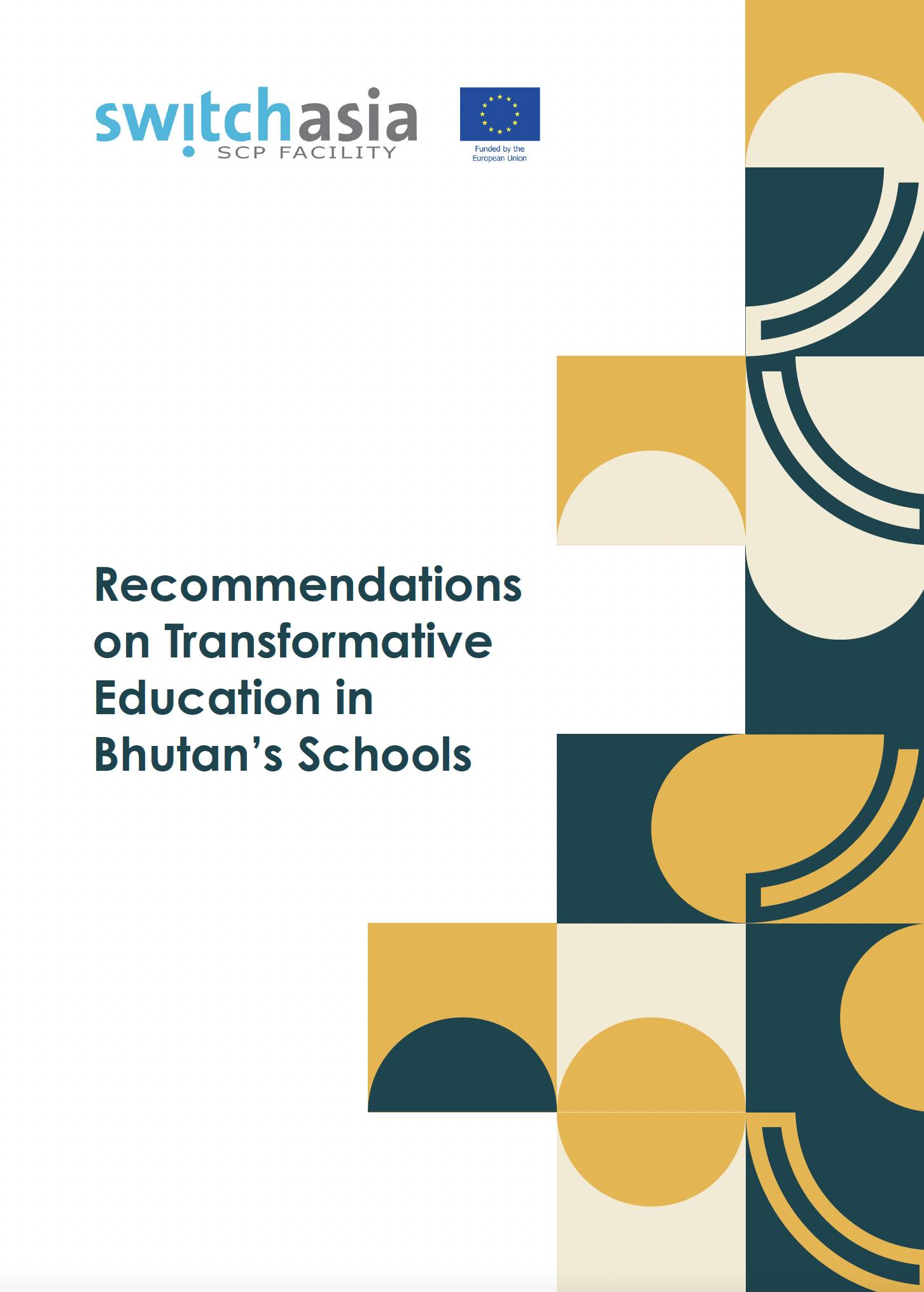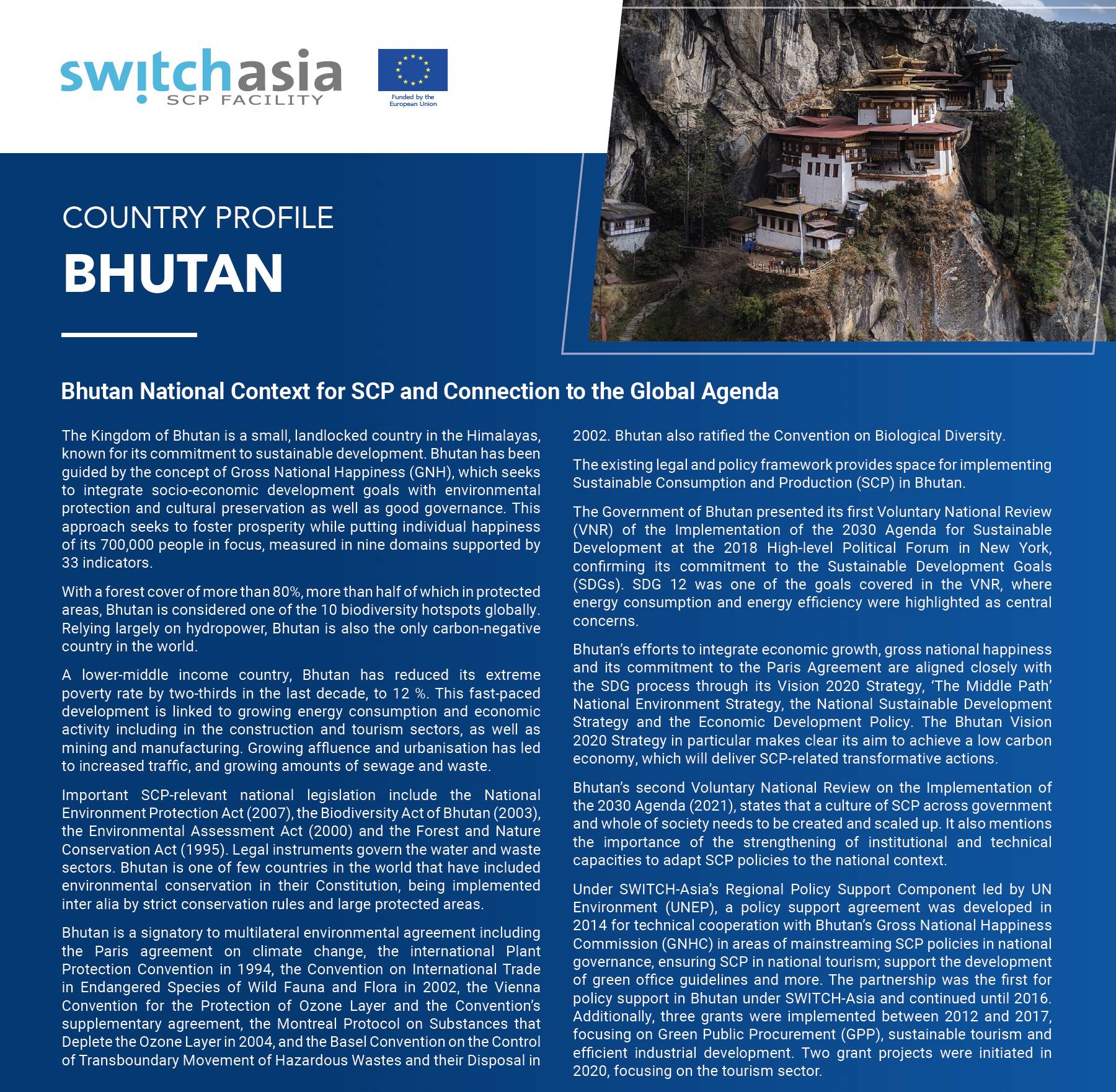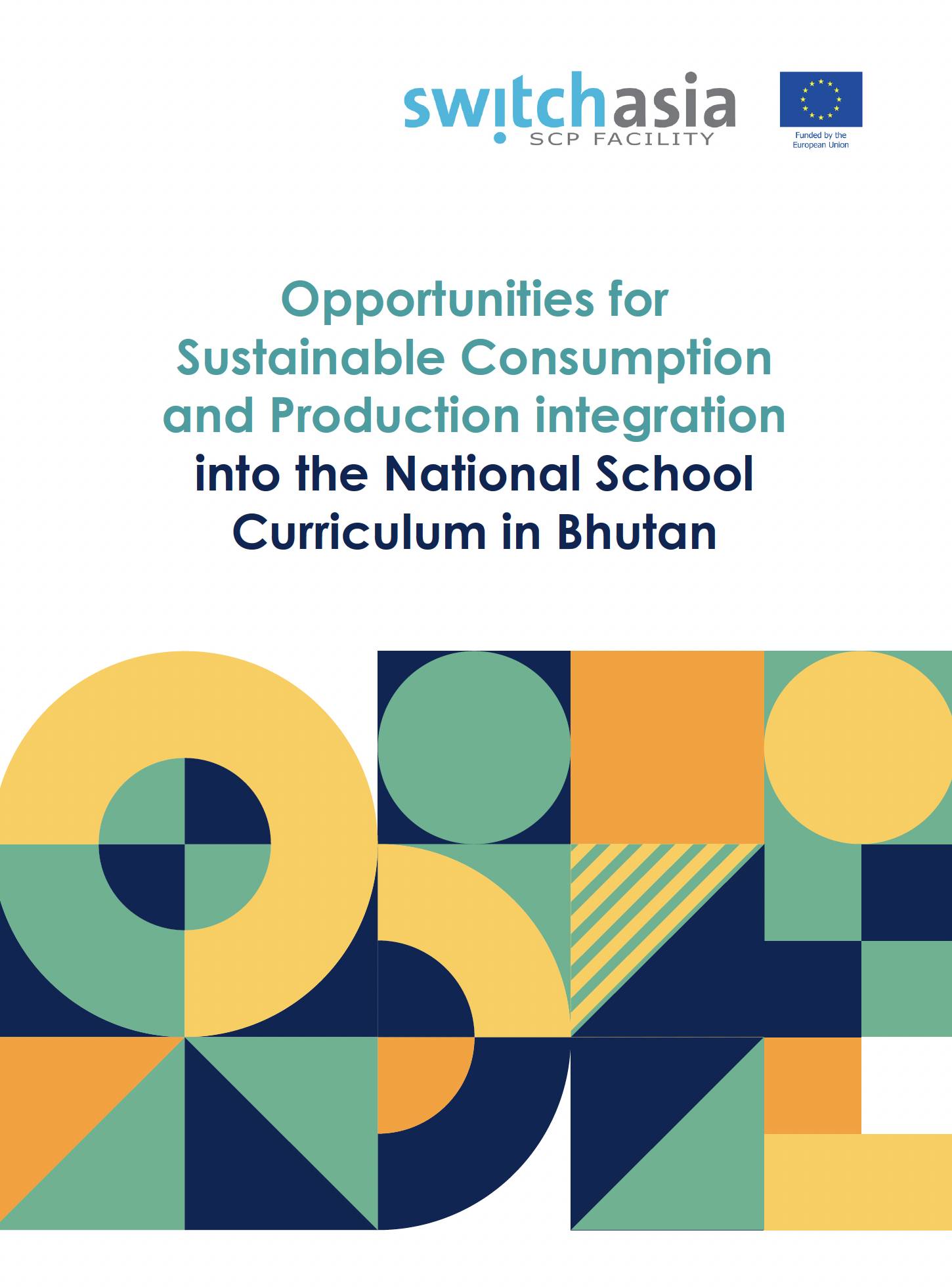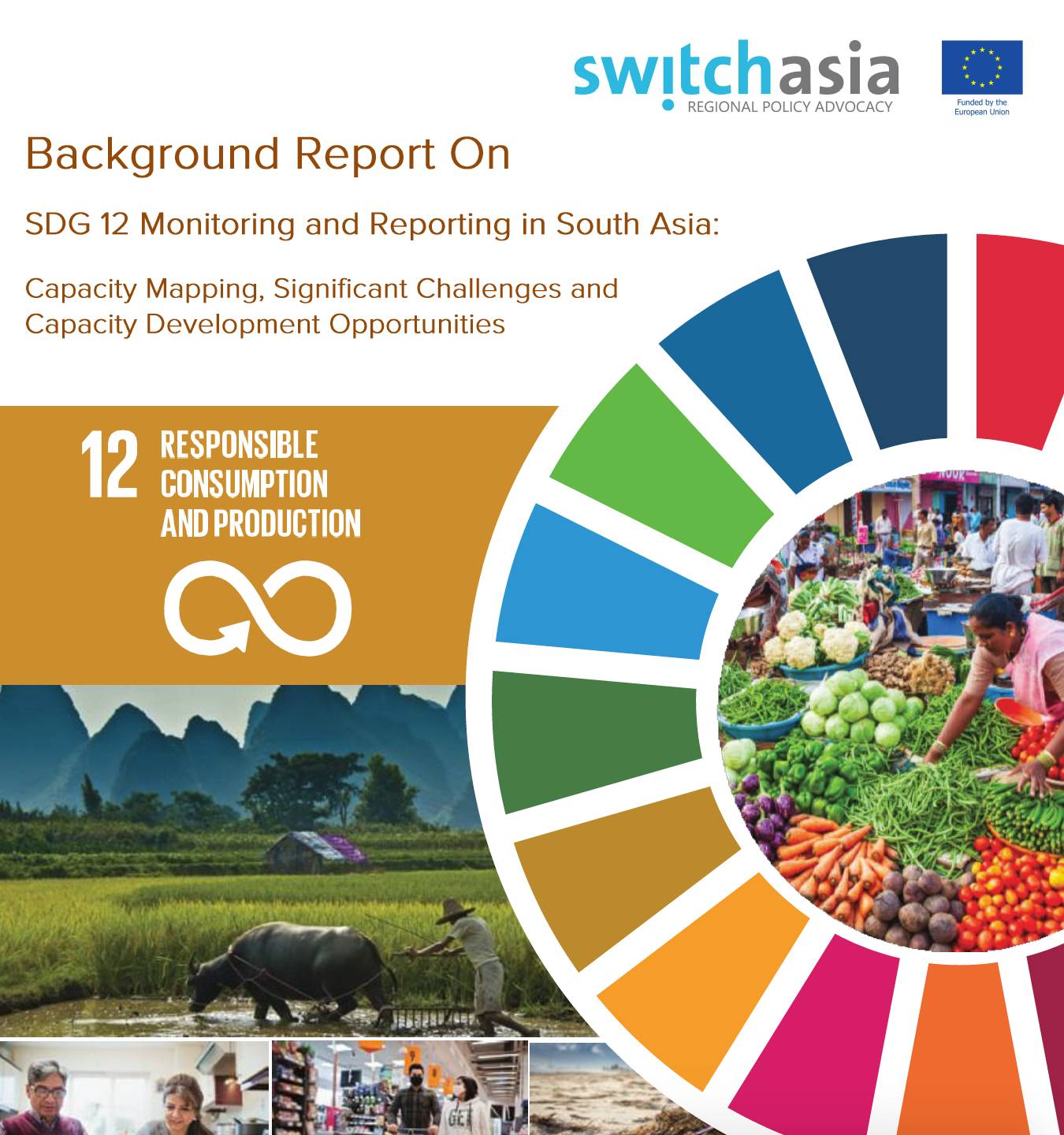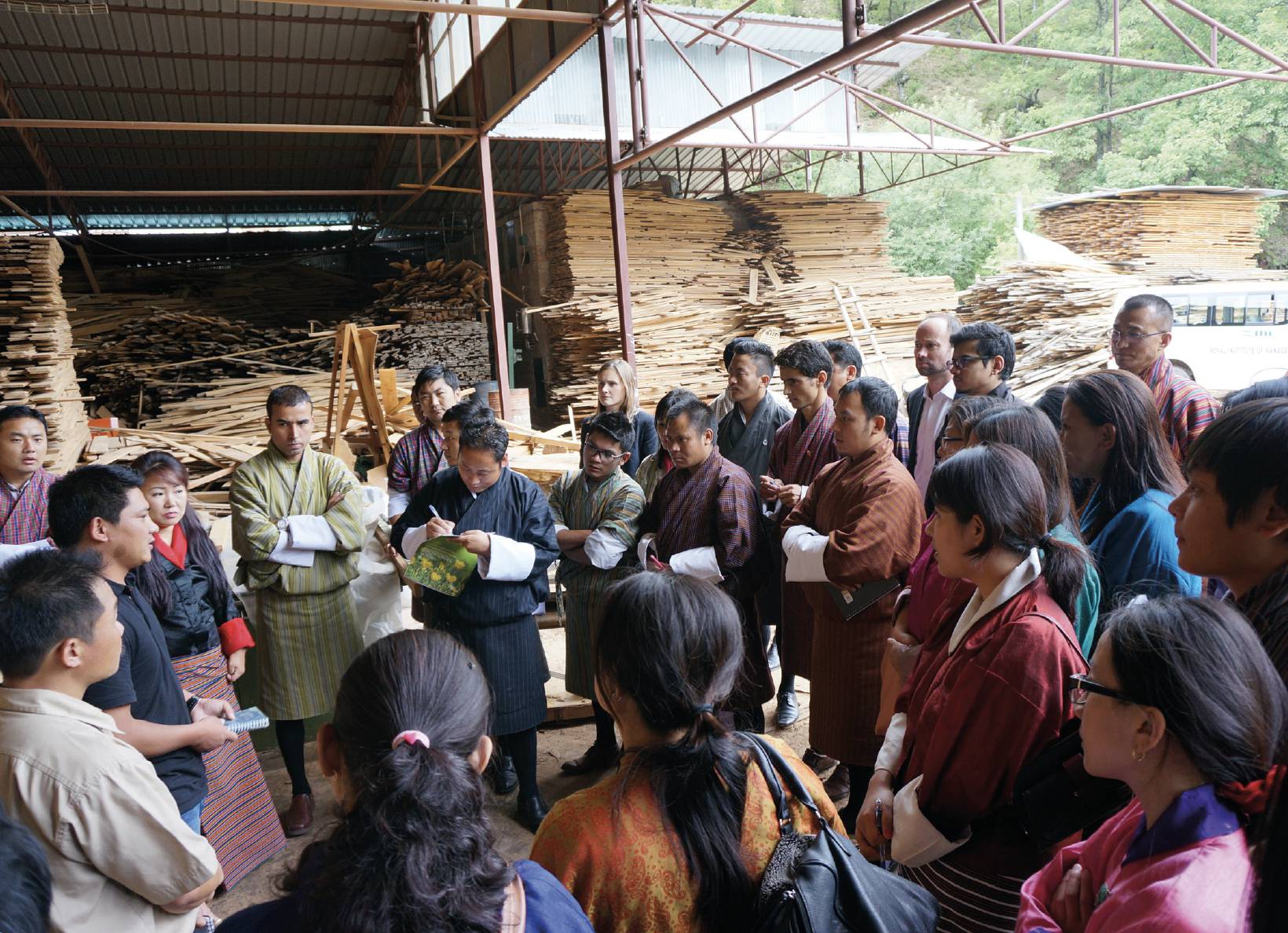
SCP Context
Bhutan National Context for SCP and Connection to the Global Agenda
The Kingdom of Bhutan is a small, landlocked country in the Himalayas, known for its commitment to sustainable development. Bhutan has been guided by the concept of Gross National Happiness (GNH), which seeks to integrate socio-economic development goals with environmental protection and cultural preservation as well as good governance. This approach seeks to foster prosperity while putting individual happiness of its 700,000 people in focus, measured in nine domains supported by 33 indicators.
With a forest cover of more than 80%, more than half of which in protected areas, Bhutan is considered one of the 10 biodiversity hotspots globally. Relying largely on hydropower, Bhutan is also the only carbon-negative country in the world.
A lower-middle income country, Bhutan has reduced its extreme poverty rate by two-thirds in the last decade, to 12 %. This fast-paced development is linked to growing energy consumption and economic activity including in the construction and tourism sectors, as well as mining and manufacturing. Growing affluence and urbanisation has led to increased traffic, and growing amounts of sewage and waste.
Important SCP-relevant national legislation include the National Environment Protection Act (2007), the Biodiversity Act of Bhutan (2003), the Environmental Assessment Act (2000) and the Forest and Nature Conservation Act (1995). Legal instruments govern the water and waste sectors. Bhutan is one of few countries in the world that have included environmental conservation in their Constitution, being implemented inter alia by strict conservation rules and large protected areas.
Bhutan is a signatory to multilateral environmental agreement including the Paris agreement on climate change, the international Plant Protection Convention in 1994, the Convention on International Trade in Endangered Species of Wild Fauna and Flora in 2002, the Vienna Convention for the Protection of Ozone Layer and the Convention’s supplementary agreement, the Montreal Protocol on Substances that Deplete the Ozone Layer in 2004, and the Basel Convention on the Control of Transboundary Movement of Hazardous Wastes and their Disposal in 2002. Bhutan also ratified the Convention on Biological Diversity.
The existing legal and policy framework provides space for implementing Sustainable Consumption and Production (SCP) in Bhutan.
The Government of Bhutan presented its first Voluntary National Review (VNR) of the Implementation of the 2030 Agenda for Sustainable Development at the 2018 High-level Political Forum in New York, confirming its commitment to the Sustainable Development Goals (SDGs). SDG 12 was one of the goals covered in the VNR, where energy consumption and energy efficiency were highlighted as central concerns.
Bhutan’s efforts to integrate economic growth, gross national happiness and its commitment to the Paris Agreement are aligned closely with the SDG process through its Vision 2020 Strategy, ‘The Middle Path’ National Environment Strategy, the National Sustainable Development Strategy and the Economic Development Policy. The Bhutan Vision 2020 Strategy in particular makes clear its aim to achieve a low carbon economy, which will deliver SCP-related transformative actions.
Bhutan’s second Voluntary National Review on the Implementation of the 2030 Agenda (2021), states that a culture of SCP across government and whole of society needs to be created and scaled up. It also mentions the importance of the strengthening of institutional and technical capacities to adapt SCP policies to the national context.
Under SWITCH-Asia’s Regional Policy Support Component led by UN Environment (UNEP), a policy support agreement was developed in 2014 for technical cooperation with Bhutan’s Gross National Happiness Commission (GNHC) in areas of mainstreaming SCP policies in national governance, ensuring SCP in national tourism; support the development of green office guidelines and more. The partnership was the first for policy support in Bhutan under SWITCH-Asia and continued until 2016. Additionally, three grants were implemented between 2012 and 2017, focusing on Green Public Procurement (GPP), sustainable tourism and efficient industrial development. Two grant projects were initiated in 2020, focusing on the tourism sector.
Challenges
-
Changing consumption patterns have increased and diversified waste generation, putting pressure on infrastructure, facilities and services.
-
Rising energy consumption, both among households and industry, where energy efficiency can be strengthened.
-
Increased pressure on transport system, affecting agriculture, tourism and other sectors.
-
Surveillance and monitoring challenges make ensuring compliance with existing laws difficult.
- Inadequate research and development capacity; lack of specific initiatives to promote sustainable production in industries, construction, and agriculture; and a lack of policy and legal framework technical capacities.
Priorities
In addition to responding to the challenges, there are key sectors and activities that will promote overall effectiveness of SCP efforts and the long-term success of the SDG implementation including:
- Creating an enabling environment to strengthen SCP policies via capacity building and awareness raising.
- Focus on sectors with high impacts and visibility for government priorities, e.g., waste management, Green Public Procurement, and Energy Efficiency.
Opportunities
- Integration of SCP policies and activities with Bhutan’s Gross National Happiness approach to development.
- Link SCP objectives with resource efficiency targets and national commitments, develop sector-specific Action Plans accordingly.
- Build capacity of decision-makers for integrating SCP into existing endeavours, especially resource efficiency and circularity.
- Enhance regional networks and partnerships for exchanges of information, technology transfer and experience sharing on resource efficiency and other SCP policies.
- Build on the work of the Regional Policy Advocacy Component and the 10YFP/One Planet Network.
SWITCH-Asia Activities
2018
SCP Facility
- Preliminary assessment of SCP related policies, activities, needs/gaps, and opportunities.
Regional Policy Advocacy Component (RPAC)
Facilitated the participation of Bhutanese key-stakeholders in the following regional/ sub-regional activities:
- Asia Pacific Low Carbon Lifestyles Challenge (19-22 Mar 2018), hosted by Thailand, regional level
- Transforming Asia Pacific: Innovative Solutions, Circular Economy and Low Carbon Lifestyles (17-19 Sep 2018), hosted by Thailand, regional level
- Asian Circular Economy Leadership Academy (3-8 Dec 2018), hosted by Thailand, regional level
2019
SCP Facility
- A multi-stakeholder consultation was held on 6 March 2019;
- The SCP Facility is collaborating with the 10YFP Secretariat, particularlyin relation to a UNDA’s funded project implemented by the 10YFP Secretariat and UNEP;
Regional Policy Advocacy Component (RPAC)
Facilitated the participation of Bhutanese key-stakeholders in the following regional/ sub-regional activities:
- “Sustainability Reporting – Thinking Circular Economy by Businesses” - This event was organised back-to-back with 2019 Asia Pacific Forum on Sustainable Development (27 Mar 2019), hosted by Thailand, regional level
- Businesses Accelerating Inclusive Green Economies – "Leaving No One Behind” - Side event on the Responsible Business and Human Rights Forum co-organised by the Royal Thai Government, OECD, United Nations Development Programme (UNDP), ESCAP, International Labour Organization (ILO) and with the participation of the UN Working Group on Business and Human Rights (11 Jun 2019), hosted by Thailand, regional level
- WEBINAR: SDG 12.1 Reporting for SWITCH-Asia Countries – Connecting the dots between actions and reporting (5 Nov 2019), regional level
- Policy Dialogue on SDG12 Reporting (21 Nov 2019), hosted by Vietnam, regional level
- 2019 SWITCH-Asia Leadership Academy on Circular Economy (2-6 Dec 2019), hosted by China, regional level
- "Supporting decision making on SCP through training on Sustainable Procurement” - This event was organised back-to-back with International Conference on Sustainable Energy and Green Technology 2019 (11 Dec 2019), hosted by Thailand, regional level.
2020
SCP Facility
- The National Focal Point is in dialogue with the SCP Facility, regarding the operationalisation of the SCP Strategy by preparing a sector-specific Action Plan, thereby advancing resource efficiency, circular economy and SCP including consumer awareness.
Regional Policy Advocacy Component (RPAC)
Facilitated the participation of Bhutanese key-stakeholders in the following regional/ sub-regional activities:
- SWITCH2Green Meeting (Apr 2020)- RPAC initiated the discussion and shared the first report in 2020.
- Moving the Needle on Climate Change (10 Jun 2020)– The event was co-organised by the UNESCAP as a part of the 2020 Virtual United Nations Responsible Business and Human Right Forum (RBHRF), regional level
- World Environment Day 2020 (5-7 Jun 2020)– A media kit was provided to call for action to promote SCP as a part of the 2020 World Environment Day (WED) celebration, regional level
- Intervention in regional forum: Webinar on Sustainable Lifestyles for Plastics & Packaging Waste Management During a Pandemic COVID-19 (6 Aug 2020), regional level
- SCP in Tourism: Opportunities and Challenges with COVID-19 (8 Oct 2020), regional level
- Innovation and Connectivity through Farm to Fork (13 Nov 2020), regional level
- Sustainable Lifestyles for SCP (19 Nov 2020), hosted by Thailand, regional level
- Sub-regional Workshop on SPP for SACEP Countries (25 November 2020), the event was organised in partnership with South Asia Co-operative Environment Programme (SACEP) for South Asia region, Sub-regional level
- Support to Steering Committee of SWITCH-Asia (3 Dec 2020)– RPAC provided support for the annual Steering Committee Meeting and proposed 2021 workplan, regional level
- Regional Policy Dialogue on Circular Cities (4 Dec 2020), regional level
- Regional Dialogue Driving Mechanisms for Eco-Design in Asia (9 Dec 2020), regional level
- Leadership Academy on Circular Economy 2020 (14-18 Dec 2020), regional level
- Webinar: Innovations & Startups (16 Dec 2020), regional level
2021
SCP Facility
- On the basis of previous discussions and analyses, a concept note on integration of SCP as a concept into education to strengthen SCP understanding and capacities among Bhutan’s education stakeholders and policymakers was developed by the SCP Facility and approved by both the national government and the EU Delegation.
- Three experts were recruited and the assignment was launched in November 2021.
Regional Policy Advocacy Component (RPAC)
Facilitated the participation of Bhutanese key-stakeholders in the following regional/ sub-regional activities:
- Contextualising the Circular Economy for Action (4 Feb 2021), regional level
- Technology for Circular Economy: A Prologue to the 2021 SWITCH-Asia Leadership Academy (25 March 2021), regional level
- Circular Economy and Sustainable Lifestyles Course (18 May 2021) – launch of offline course on SCP for policy makers and young professionals, regional level
- South Asia Policy Dialogue on the Role of Businesses in Accelerating SCP (23 March 2021) – to disseminate the findings of the RPAC Study on SCP – Stocktaking of Perspectives in South Asian Business, sub regional level
- GO4SDGs High level launch in Asia and the Pacific (21 April 2021), regional level
- World Environment Day 2021 (4 June 2021), regional level
2022
SCP Facility
- The experts have worked to deliver analysis and recommendations on current status and opportunities for integrating SCP issues into the school curriculum, including through consulting with national education stakeholders; the approach is also applicable to other countries.


